Nextier in its latest report released on Friday night mirrors Nigeria’s 2023 State elections and maps potential election-related violence hot spots in 23 states. The Independent National Election Commission (INEC) will be conducting governorship elections in 28 of Nigeria’s 36 states on Saturday March 18, 2023, According to the report, Lagos, Rivers, Benue, Abia, Bauchi , Kaduna and Kano are major hot spots.
Some states with off-season election cycles for governorship seat but will be holding state Assembly polls – Anambra, Imo and Edo and others – were also listed as having the potential for extreme violence.
Join our WhatsApp ChannelREAD: INEC Denies Removing Igbo, South-South Ad-hoc Staff In Lagos Guber Election
Details of violence-prone states in March 18 elections are listed by Nextier are as follow:
Benue State
Election-related violence has been common in Benue, with instances of hostage-taking onINECofficials and burning election materials on election day. Acts of thuggery and burning of electoral
materials during the 2019 elections in Gwer East and Gboko led to the rescheduling of elections. Despite the relatively smooth conduct of the presidential elections, dominant themes of
godfatherism and inter-party tensions look to take centre stage in the forthcoming gubernatorial
and state assembly elections. According to Nextier Violent Conflict Database and other sources, Benue state recorded more than 14 electoral violence incidents between 2014 to 2023, making it
among the prone states in the North central region.
Projections:
1.Godfatherism and imposition by state ruling party could lead to disruption in the elections
2. Inter-party tensions over a plot by both parties to rig elections could lead to a security dilemma and trigger at the polls
KOGI STATE
Kogi State has been a hotbed for election-related violence, with electoral thuggery playing out each cycle. The complicity of security officials in electoral violence, vote trading and inter-party tensions have often dominated the electoral scene in the state. In the 2019 gubernatorial elections, four people were killed; hence there is a likelihood of shootings, killings and thuggery.
According to Nextier Violent Conflict Database and other sources, Kogi State recorded more than 17 electoral violence incidents between 2014 and 2023, making it among the most prone in the North Central
region.
Projections
- Vote trading and attempts to compromise INEC Staff could lead to violence
- Stiff opposition leading to heightened political power tussle and violence
- Negative and deadly deployment of the power of incumbency by the political partyinpower at the state
- The weaponisation of security officials in the disruption of polls could turn violent
- A repeat of recorded violence seen during the 2023 Presidential elections in Mopa and Dekina LGA
NIGER STATE
Election-related violence in Niger state has often been in the form of thuggery and arson. Theelectoral violence also played out during the just concluded presidential elections. According to Nextier Violent Conflict Database and other sources, Niger State has recorded more than nine electoral violence incidents between 2014 and 2023, making it among the most prone in the North Central region.
Projections
- A repeat of recorded inter-party clash seen during the 2023 presidential election in the Jima community of Lavun Local Government area
- Youth restiveness could degenerate into political rivalry and subsequent clashes at the polls.
BORNO STATE
Borno State has a record of electoral violence. It’s was one of the states affected by the post-election violence that claimed 800 lives in 2011. According to the Nextier Violent Conflict
Database, Borno recorded one incident of electoral violence during Nigeria’s 2023 general elections. Terrorists shot at and injured five voters in a polling unit in Borno’s Gwoza Local Government Area. According to the Peace and Conflict Trend Analysis, there were four incidents of electoral violence and two deaths in Borno State during the 2019 elections.
Projections
1. Given the current trajectory, Borno state may face violent intimidation and attacks by political thugs
2. There may be terrorist attacks on both voters and politicians
3. Collaborations between election officials and politicians in disrupting polls could result in violence
4. The state may also record violent electoral malpractice, including thuggery and ballot box snatching
GOMBE STATE
Electoral violence frequently occurs in Gombe State. This violence can take many forms, including property destruction and killings. The announcement of Nigeria’s 2011 general election results sparked violence in Gombe, resulting in killings. According to data from the Nextier Violent Conflict
Database, Gombe state recorded two incidents of electoral violence, one of which resulted in death during the 2023 presidential and national assembly polls. In one of the incidents, thugs attacked an ad-hoc staff of the Independent National Electoral Commission (INEC). A polling unit was also attacked during the 2023 presidential elections.
Projections
- The ruling All Progressive Congress (APC) appears locked in a battle with the strongest
opposition, the Peoples Democratic Party (PDP). The incumbent governor is determined to retain power. The opposition’s incursion may devolve into the warring parties using violence as a tool for victory - On the 2023 gubernatorial election day, hoodlums may go on the rampage.
- Gombe may record violent threats, injuries and deaths caused by rival party supporters
- Officials and politicians collaborating to disrupt elections may result in violence
Electoral violent records may include ballot box snatching, attacks on polling units, and voter intimidation
BAUCHI STATE
Political violence has remained one of the quickest ways to gain and maintain political power in Bauchi state. For instance, ‘Sara Suka’ is a group known for political thuggery. Politicians motivate and sponsor the group to rig, intimidate, harass, and kidnap opponents.
In 2011 Bauchi recorded post-election violence that led to killings. According to the Nextier Violent Conflict Database, one electoral violence incident occurred in Bauchi State. Thugs attacked the House of Representatives collation centre for the Bogoro/Dass/Tafawa Balewa Constituency in Bununu, Bauchi State. As the gubernatorial elections draw near, the race between the incumbent governor, Bala Mohammed, and the All Progressives Congress governorship candidate in Bauchi State, Air Marshal Sadique Abubakar (Rtd), could be heated, with pockets of armed clashes between rival supporters.
Projections
- Bauchi may record violent threats, injuries, and deaths perpetrated by rival party supporters Electoral officials, security agents and politicians may conspire to disrupt the process,
leading to violence - Electoral violence may also manifest as ballot box snatching, attacks on polling places, and voter intimidation
KANO STATE
Kano is a politically diverse state with a rich history of intense political competition. The state has witnessed widespread violence, intimidation, and electoral abuse in the last two elections- 2015 and 2019. The current situation is challenged by the vacancy of the governorship seat (the incumbent
governor has reached his term limit), and losing parties in federal elections would want to settle scores with state elections. Tracked data from the Nextier Violent conflict Database shows the state is witnessing election-related violence. Between November 2022 and March 2023, 20 casualties were reported in the state.
Projections
- Use of thugs to perpetrate electoral violence and suppress opponents and their supporters to influence the electoral process
- Allegations of electoral malpractice, such as vote rigging or ballot box snatching, can contribute to tensions, arson and violence during and after the election
- BVAS failure and corruption of election agencies could lead to attacks on INEC staff or disruption at collation centres
- Disputes over the election’s outcome may lead to protests and other forms of unrest that
could turn violent - Possible clashes between members of the political party in power at the state- All
Progressive Congress (APC) and the New Nigeria People’s Party (NNPP)
ZAMFARA STATE
Zamfara State is grappling with insecurity and banditry, leading to a breakdown of law and order in some areas. The state has a history of violent power struggles during election years, and the run-up to the February 2023 general election has seen violent attacks among political supporters. The Nextier database has recorded political violence targeting candidates, election officials, and politicians. At least 19 casualties have been recorded between November 2022 and March 2023.
Projections
- Violence is used as a means of voter intimidation to drive low voter turnout, especially in opposition areas
- Disruption of voting by political thugs Allegations of electoral malpractice, such as vote rigging or ballot box snatching, can contribute to tensions during and after the election
- BVAS failure and corruption of election agencies could lead to attacks on INECstaff ordisruption at collation centres
- Collation officers could be targeted, resulting in the collation process being abandoned
- Increased military and paramilitary deployment
KADUNA STATE
Kaduna is also among the most volatile Northwest states. The polarisation of the state along identity lines makes political contentions fierce. Political aspirants’ goals heighten the state’s political climate as all aspire to succeed the incumbent governor who has completed his tenure in office. During previous election cycles, violence had escalated along ethnic and sectarian lines, resulting in revenge killings. The February 2023 general election has recorded two casualties, according to the NextierViolent Conflict Database. With the elections having three political parties running neck toneck, possible election violence will involve a three-way clash.
Projections
- Political parties, desperate to win the election, could deploy thugs to snatch ballot boxes and vandalisation of election materials in opposition strongholds, which could potentially lead to violent clashes and unrest
- Civil unrest leading to inter-communal tensions
- Assault of election officials and voters
- Voters’ intimidation and suppression could lead to low voters turnout
- The assassination of opponents or electoral officials
- Militarised local communities and recourse to self-defence militias
Increased security operations in the region could add pressure to the region
ABIA STATE
The governorship election will be keenly contested mostly among four leading contenders. This is enough incentive for a violence-prone electoral process. Pockets of election-related violence and casualties have also dotted previous elections in the state. Two people were killed during the presidential and national assembly polls. Also, the Nigerian police have often arrested some people for various election violence offences.
Projections:
Activities of political thugs, violence against voters, electoral officers, and other election stakeholders may surface in the state. Also, existing violent conflicts may not matter much, given that the state has consistently remained outside the top three most violent states in the Southeast region for an extended period.
ANAMBRA STATE
Although the polls will be for the state assembly slots, the incumbent governor and other parties will
strive to have the majority in the House of Assembly, leading to stiff competition. There havealsobeen cases of election violence and other security threats linked to secessionism and political
assassinations. These issues cannot be ruled out in projecting a possibility of election violence on March 18, 2023. At least half a dozen people have died from election-related violence since November 2022, according to combined data from the Nextier Violent Conflict Database and other sources.
Projections
The state is inundated with cases of gunmen violence, which may also play out during the upcoming polls 1. The competition among political parties and other members of the public to dominate the state assembly may be the tipping point of aggravated tensions and outright violence
2. The state government will deploy every means possible to elect its party members from the All Progressive Grand Alliance (APGA) into the State Assembly. Hence, potential clashes between state officials, members of the Labour Party (LP) and the voting population.
ENUGU STATE
Gubernatorial and state assembly elections will be intense and potentially violent, given strong front
runners. In the past, there have been multiple cases of election-related violence. Hence, this period may not differ as violent cases have been recorded in the build-up to Nigeria’s 2023 general
elections. Over a dozen political thugs have been arrested in the state by the police. There have been attacks on state infrastructure in the state. The Nigerian Police had earlier identified Enugu as a potential election-violence hot spot in 2023, given cases of violence and other criminal activities in the state. About 10 people, including political candidates, security agents and civilians, were killed in the 2023 general elections build-up.
Projections
- Observed cases of aggression before the polls may lead to violence during the election
- The stiff competition of strong contenders may result in the deployment of violence to gain undue advantage
- Election violence in the state may play out as political assassinations, attacks on voters and electoral officers, destruction of voting materials and disruption of the voting process in some locations.
EBONYI STATE
Pre-election aggression is rife in Ebonyi, with major political parties blaming one another for masterminding recorded electoral violence in the state. The Nextier Violent Conflict Data base has recorded six incidents since the presidential and national assembly polls.
Projections
- Attacks on political candidates and their affiliates by gunmen recorded during the campaign season may reoccur during the March 18, 2023 polls
- Intense political rivalry among the leading parties in the state is a tipping point for election- related violence
IMO STATE
Imo state is an electoral violence hotbed in the southeast, and the political and judicial battles that
led to the incumbent governor’s emergence are a potential cause of intense state assembly polls. Also, existing security threats in the state are a cause for worry, especially with incidents of arson attacks on INEC facilities and activities and cases of suspected political assassinations in recent
months.
Projections
Prevailing gunmen violence cannot be ruled out during the state assembly polls
- The incumbent governor may strive to achieve majority seats for his party at the detriment
of other political contenders and a significant proportion of the public, which may have reservations about his emergence as the governor following a supreme court ruling. Such resentments may be taken to the polls, possibly leading to an intense outing.
LAGOS STATE
According to the Nextier Violent Conflict Database, Lagos state recorded more electoral violence incidents (eight), from ballot box snatching to attacking and intimidating voters by political thugs during the presidential elections, than the other southwest states. For instance, thugs attack voters in Oniwo in Surulere Local Government Area.
Projections
- The gubernatorial election in Lagos will be highly sensitive and contested, seeing how the ruling party lost the state during the presidential elections
- Issues of ethnicity are building up toward the elections, and violent attacks by identity bigots cannot be ruled out
- The likelihood of disrupting the electoral processes, like the abduction of Ad-Hoc staff, stealing BVAS machines, and attack on the electorates, is high.
OYO STATE
The ruling party not winning the state for the general elections increases the tension around the gubernatorial polls in Oyo State. New big players have also entered the mix, deepening the competition’s intensity. The chances of violence due to the existing tension of the ruling party wanting to exert dominance and gain the majority in the State House of Assembly is high since the state recorded violence during the general elections.
Projections
Staunch party supporters intimidating voters in their respective strongholds cannot be ruled out
- There may be disruption of electoral processes by hoodlums snatching ballot boxes, attacking voters and INEC officials
OSUN STATE
The Osun State election is for the House of Assembly seats. The polls are edgy because the tribunal
has nullified the newly elected governor, declaring the former governor the winner. It is only fair to say that the governorship position is still up for grabs which might compel the two contenders to wrestle for State House of Assembly seats for their party members. According to the police, there was no violence during the gubernatorial election in July, and even the presidential elections were relatively peaceful. Still, these issues may perturb the peace that has been in the state during the election and projecting a possibility of election violence on March 11, 2023, cannot be ruled out.
Projections
- The chances of harnessing the power of thuggery or the existing actors to intimidate voters and disrupt electoral processes by attacking voters and INEC staff, snatching ballot boxes and BVAS machines in the strongholds of both candidates are high.
RIVERS STATE
Electoral violence has plagued Rivers state significantly, and its root cause can be traced to the state’s alleged corrupt, violent and unaccountable nature of politics. Crime and political governance have increased due to their failure in governance. Some reports hold that elections in Rivers state have been consistently rigged through violence and fraud since 1999. Therefore,electoral violence in the state is possible, as seen in the presidential and national assembly polls. Rivers recorded the highest number of reported fatalities within the Niger Delta in 2015 and was sustained in 2016, with casualties in the state finally decreasing in 2017.
Projections
- Attacks by rival gangs or political thugs could lead to sporadic shootings and loss of lives
- Political heavyweights in the state may intimidate election officials and voters into doctoring the election results.
CROSS RIVER STATE
In Cross Rivers state, electoral violence has become part of a political culture. Elections in the state are barred by various types of violence associated with party politics and the conduct of the election.
In Cross River state, it was alleged that the police command arrested 16 persons over electoral
violence in Obudu Local Government Area of the state. According to Nextier Database, an incident
resulted in four casualties in the just concluded election.
Projections
- Voters suppression and intimidation by ruling political parties
- Ethnic sentiments and the use of emotivism to sway people’s choices could lead to violence
AKWA IBOM STATE
Electoral violence in Akwa Ibom State can be triggered by voters’ intimidation, suppression and other forms of election malpractice. The election in Akwa Ibom is often violent, and vote buying is a significant challenge in the state.
Projections
- Compromised electorates and INEC staff can lead to violence in the various polling units
- Voter suppression and intimidation by political actors and thugs
DELTA STATE
Electoral violence has always been a hotbed for electoral violence. The state has a notoriety during elections due to constant threats to life by political thugs. In the 2019 elections, two people were reported dead with several injured after unknown gunmen opened fire at a polling unit in Amukpe.
Projections
- Discord among the electorates and party supporters may escalate to violence
- Gunmen attacks to disrupt the election process
- Perceptions of INEC and security agencies’ bias may trigger violent narratives leading to unrest
EDO STATE
Although the state would not participate in the upcoming gubernatorial election, it has been a hotbed for electoral violence over the years. The most prevalent electoral crisis in the state is cult clashes and the use of political thugs. According to the Nextier Database, Edo State witnessed three incidence and three casualties in the just concluded presidential election.
Projections
- The use of cult gangs as political thugs to intimidate election stakeholders and disrupt the election process
- Fierce competition among leading political contenders will likely pose security threats to election officials and electorates during the polls
BAYELSA STATE
Since the return to civilian government in Nigeria on May 29, 1999, elections in Bayelsa state have been characterised by violence. The power tussle during an election often leads to violence before, during and after the election. The most prominent forms of electoral violence in the state are intimidation, kidnapping, assassination, hijacking of electoral materials, etc. The Nextier Data base recorded three incidences with two casualties in the just concluded election.
Projections
- Allegations of malpractice and disenfranchisement may result in violent agitations by voters
- Election violence in Bayelsa State may manifest as attacks by political thugs, kidnapping, political assassinations and hijacking of election materials.
RECOMMENDATIONS:
Enforcement of electoral law: To mitigate electoral violence and strengthen stakeholders’ confidence in the institution and electoral process, enforcing electoral laws and regulations is critical. The Independent National Electoral Commission (INEC) plays a crucial role in that regard. INEC should ensure that all political parties and candidates comply with the country’s laws and regulations governing electoral processes.
INEC actions should also be transparent, as this will strengthen stakeholders’ confidence in the institution and process of the elections.
Election security: Security agencies should identify areas prone to electoral violence and increase security presence. Security deployment during the polls should reflect on the voting and collation period’s safety for the election stakeholders.
Promote inter-ethnic and inter-religious dialogue: Engaging with community and religious leaders to promote dialogue and reconciliation can help reduce tensions and prevent violence. There is also a need to intensify and harmonise peace building efforts during election cycles for maximum and sustained impact.
Create Youth Employment Opportunities: Addressing the high levels of youth unemployment can help reduce the number of young people vulnerable to being recruited as political thugs. Evidence should inform responses: security agencies should collect data on the most common violent election-related violence in the 2023 presidential elections and use it to prepare for the upcoming governorship and state house of assembly elections. Accountability mechanisms: political leaders must be reminded of the importance of peaceful
elections and the need to avoid violence. The cost of electoral violence, mainly sponsored by politicians, must be emphasised. The recent arrest and denial of a certificate of return for the House of Representative Leader, Alhassan Doguwa, for the murder of opposition members is a reference case.
CONCLUSION
The experiences of the presidential and national assembly polls may burden the second lap of
Nigeria’s 2023 general election. However, INEC and security agencies’ roles in ensuring a better outing on March 18, 2023, are key to election security. Beyond this, other election stakeholders such as political parties, supporters, voters and the general public all have roles to play in ensuring a peaceful outing. Reliance on satisfactory performance of statutory duties by the relevant election stakeholders may mitigate the possibilities of election violence.

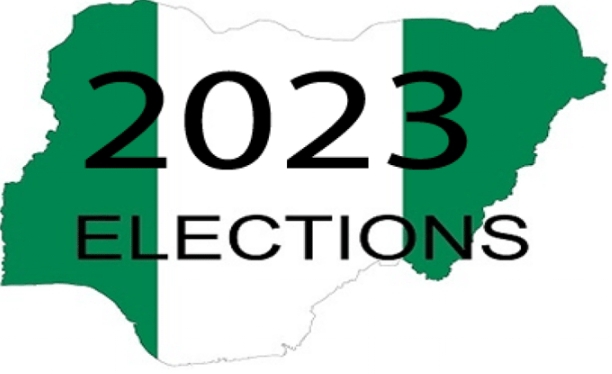


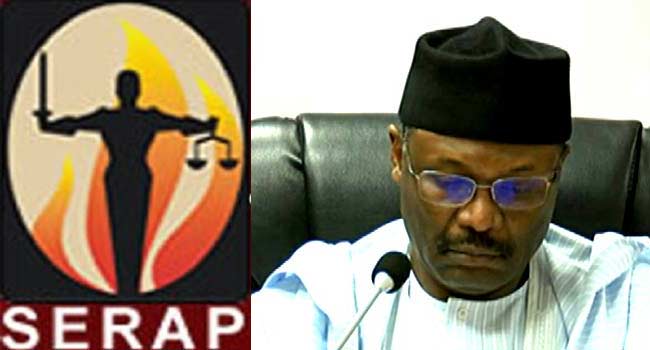
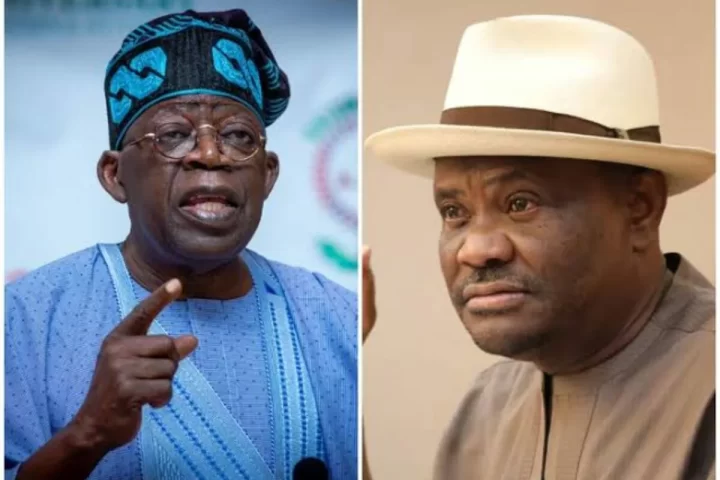
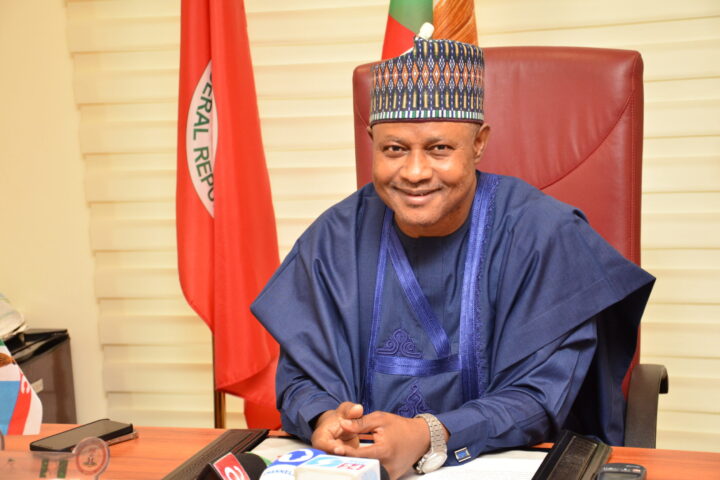








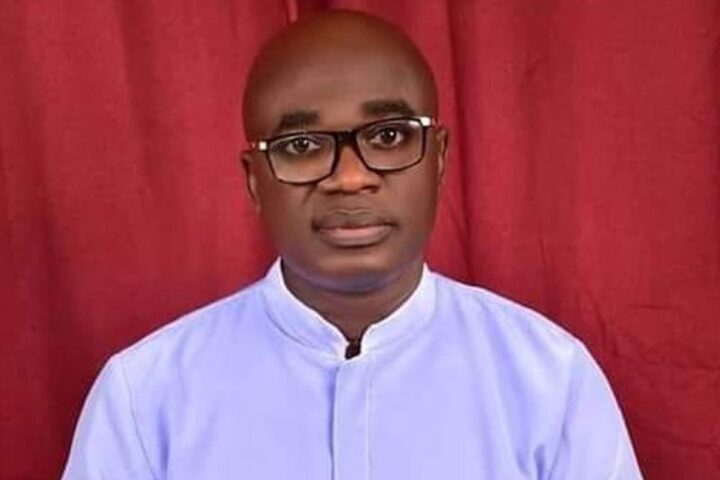
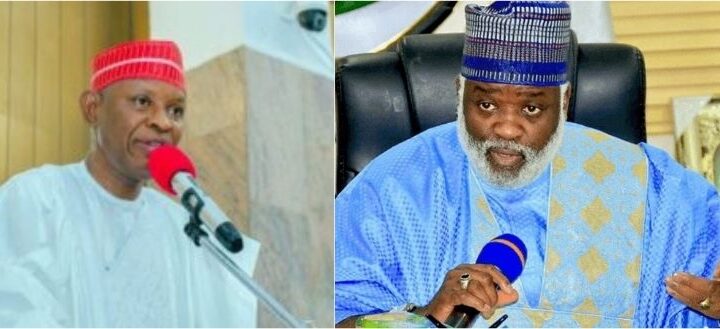
Follow Us